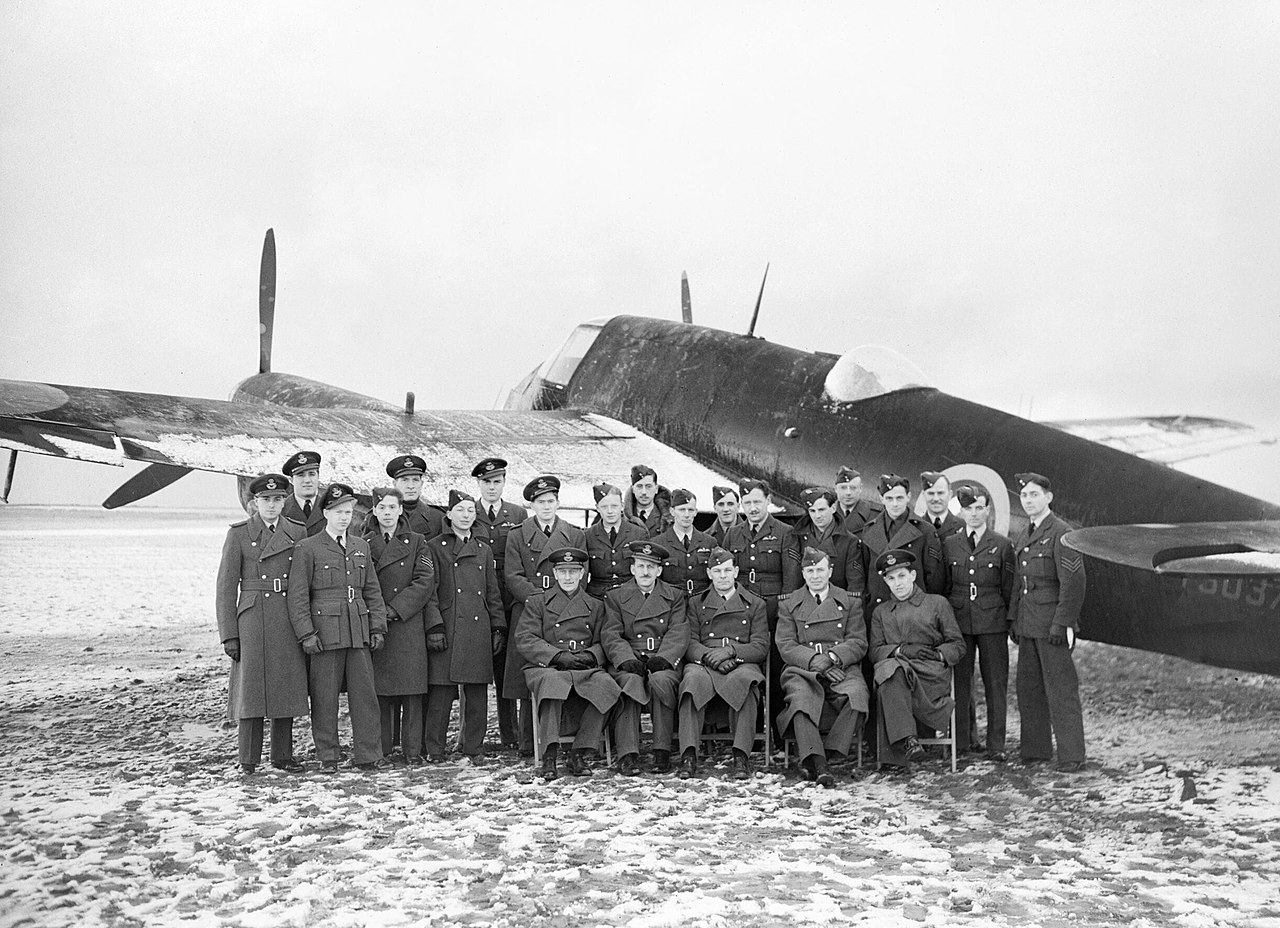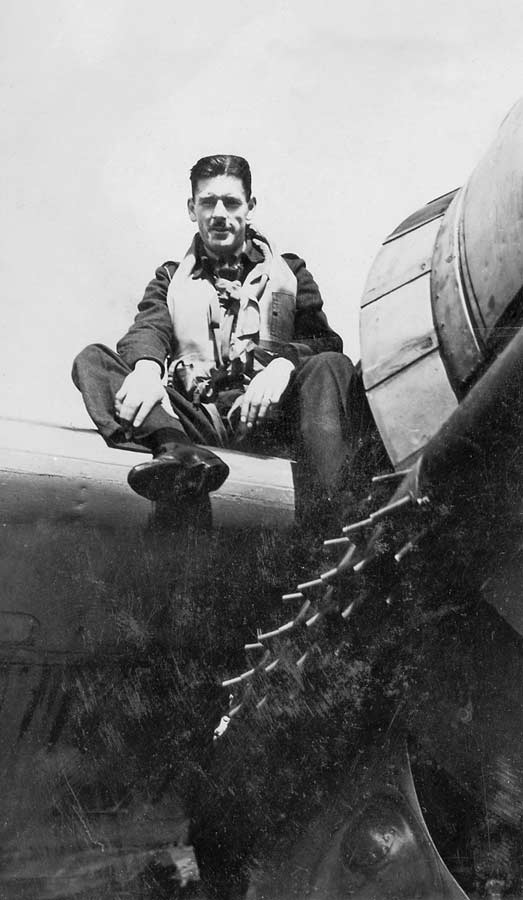1942
Personnel of Flight “B” of 409 Squadron pose with a Beafughter Mk. II at RAF Station Acklington in January 1942. It looks cold!
A Busy Summer
Early in June the Beaufighter V’s were turned in for faster and more maneuverable Beau VIs. The crews were spoiling for a chance to try out their new kites in action and they had not long to wait for the fine summer weather and Hitler’s rage brought the Luftwaffe into Britain’s skies to seek reprisal for the tremendous damage that Bomber Command was now inflicting on the Fatherland. F/L E. L. McMillan (RAF) was the first to score with the new aircraft when he destroyed a Do. 217 and damaged another on the night of 23/ 24 July. These victories were followed by four more in July, including a pair by Davoud and Carpenter, and seven in August. Nine Nighthawk crews took part in these encounters which resulted in one enemy aircraft destroyed, four probably destroyed and eight damaged. Most of these engagements were against twin-engined Do. 217s which were almost as fast as the Beaufighters, thus making it necessary for the night fighter pilots to push their aircraft to the limit for the ardently sought tally-ho. The wily Hun pilots had learned a lot about our night fighting tactics and led the Nighthawk crews on many an exciting moonlight chase as they weaved, dived and made violent and skillfully executed peel offs and hard stall turns in an effort to throw their pursuers off their tail. These manoeuvers meant the use of deflection shooting 95% of the time and the idea that the night fighters had simply to position themselves dead astern and open fire had to be disregarded.


